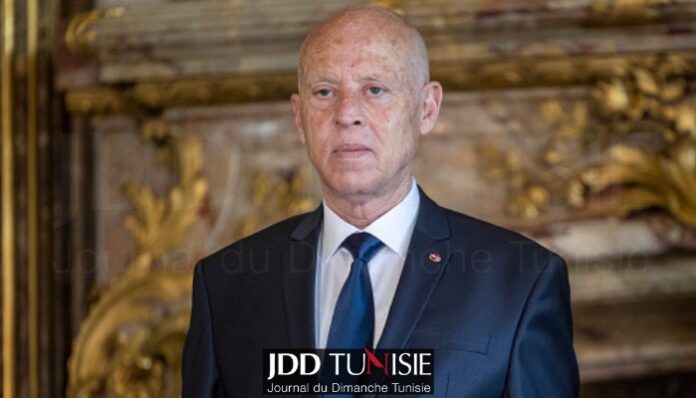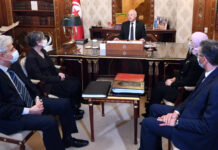On Thursday evening, September 30, 2021, President Kais Saied received Najib Gtari president of the Court of Accounting, who presented the Head of State with a report on the control of the administrative and financial conduct of the Independent High Electoral Commission.
Saied affirmed that the judiciary must assume its full responsibilities at this historic moment in Tunisia and hold those involved in corruption cases accountable until the Tunisian people regain their right and the Tunisian state gets rid of the evidence it has been suspended in the decades, according to a report of the Presidency of the Republic. A legal mechanism to dissolve parliament? The oversight process conducted by the Court of Accounting during the 2019 legislative and presidential elections showed a “number of serious breaches” committed by the candidates, sparking a political and legal debate as political parties demanded judicial intervention and accountability for electoral crimes.
The president’s meeting with the president of the Court of Accounting came hours after a number of deputies called for the resumption of the legislative council after the end of the parliamentary recess on October 1st, noting that Decree 117 issued by Saied on September 22nd stipulated that the terms of reference of parliament should continue to be frozen without clearly dissolving the text while the president replaced the legislative authority by issuing decrees.
Returning to the report of the Accounting Department, activating its recommendations could lead to the dissolution of parliament, as Chapter 19 of Decree No. 87 of 2011 on the organization of political parties is restricted, Accept direct or indirect cash or in-kind financing issued by any foreign entity.
Anonymous direct or indirect funding.
Aid, donations and donations from moral selves, especially public, except for funding carried on the state budget. Donations, donations and wills issued by natural persons with an annual value of more than 60,000 dinars per donor.
” The same decree punishes parties that violate funding chapters with fines equal to the value of the funds received and may reach prison and suspend or dissolve party activity if it is found to have continued to commit the same crime. On the other hand, the Electoral Law criminalized foreign funding, as chapter 163 stipulated that “if the Court of Accounts proves that the candidate or list has obtained foreign funding for her campaign, she is obliged to pay a financial written fee 10 to 50 times the amount of foreign funding. Members of the foreign-funded list lose their membership in the People’s Assembly and the candidate for the foreign-funded presidency is sentenced to five years’ imprisonment.
” Published issues On July 14, days before the President of the Republic activated Chapter 80 of the Constitution, the Public Prosecutor’s Office of the Court of First Instance in Tunis opened an investigation into three parties, Ennahdha, Qalb Tounes and Eich Tounsi, on suspicion of receiving foreign funds during the 2019 election campaign. After conducting various investigations and preliminary investigations, the Public Prosecutor’s Office also authorized a security unit in the past to conduct the necessary research on the U.S. Department of Justice’s website on the document of the Contract “Lubing” attributed to Ennahdha, and aims to publicize against the president’s extraordinary decisions issued on July 25th.
Meanwhile, Accounting Court Judge Fadhila karkouri said 300 preliminary rulings were issued on the winning and non-winning lists in the 2019 elections, noting that the removal of the lists included only the winners. She explained that the decision to drop was first after it was established that the party was actually using foreign funding, and then to prove that the winning lists were using the funding through the party.
Rifi-JDD











